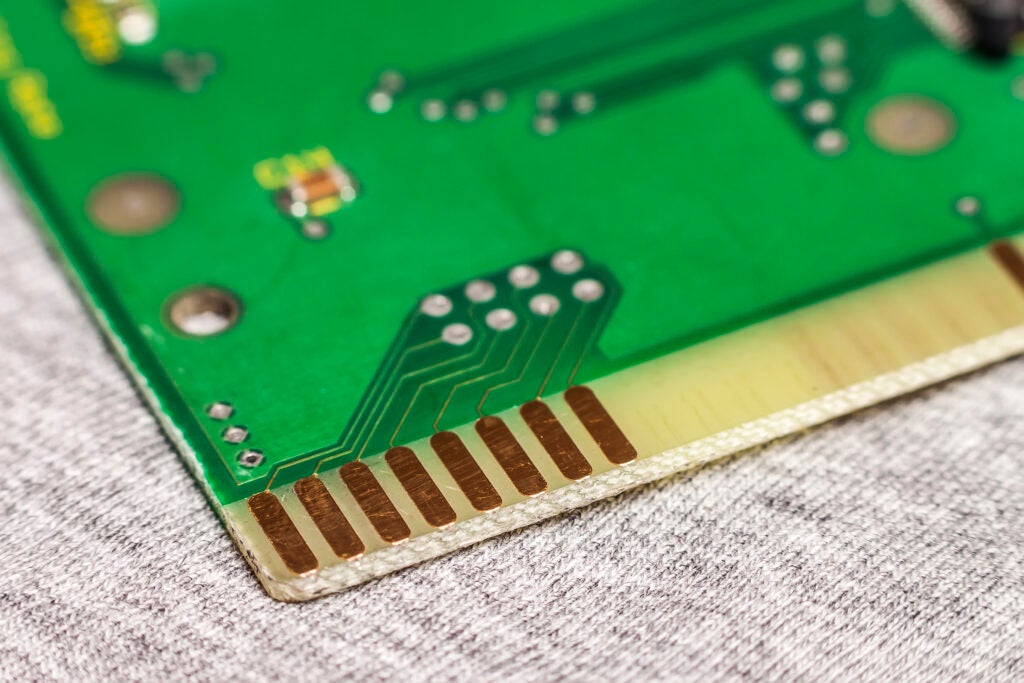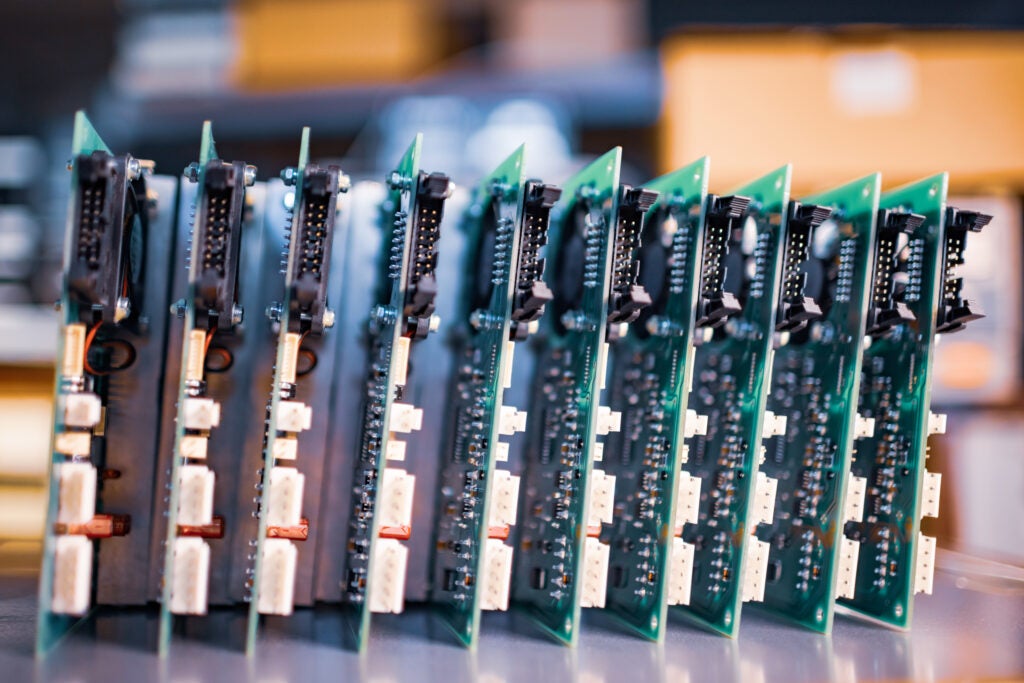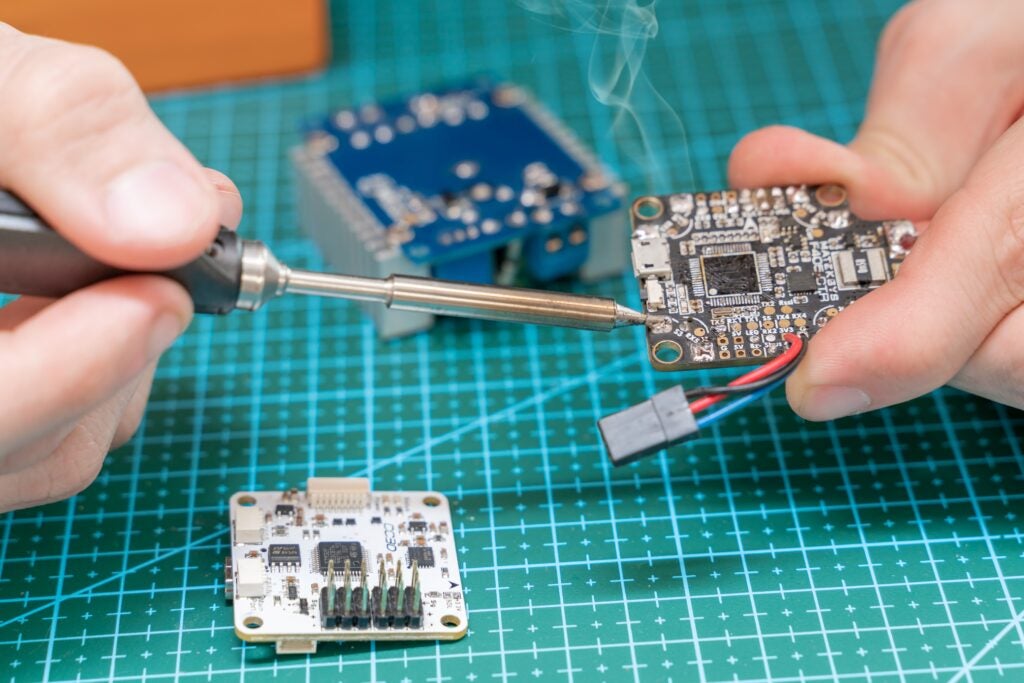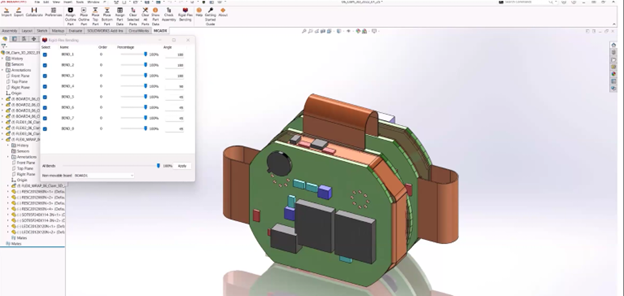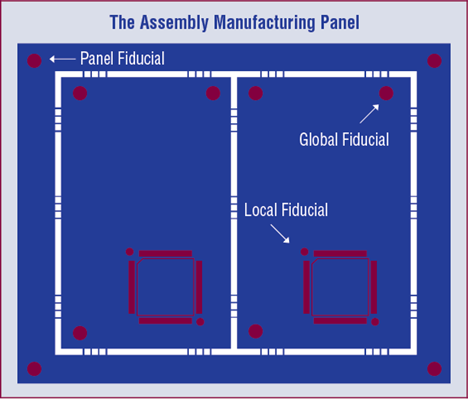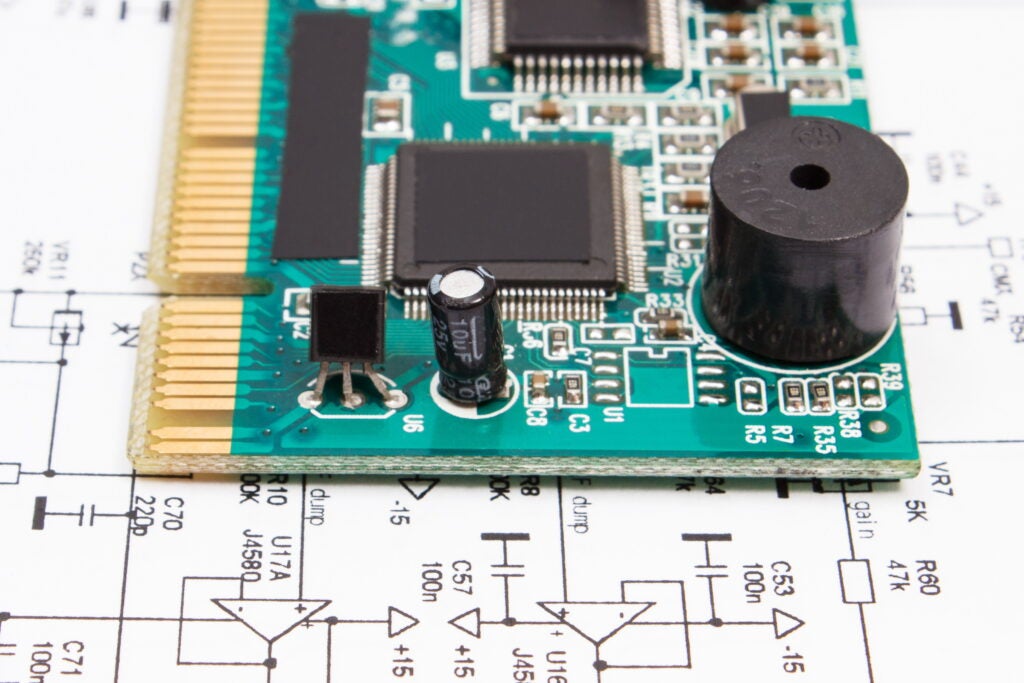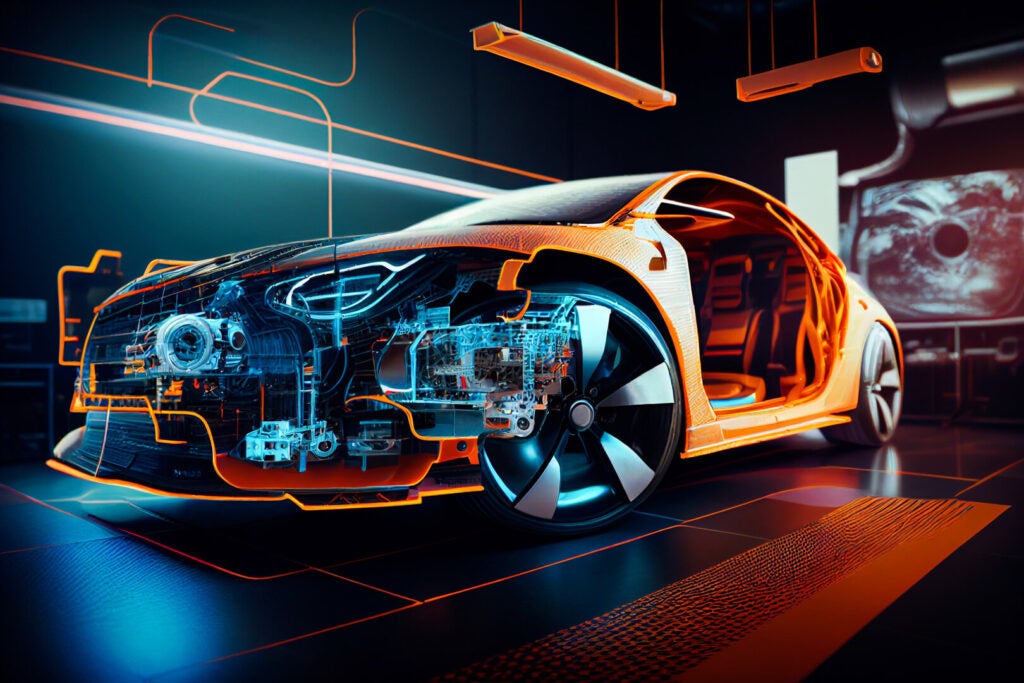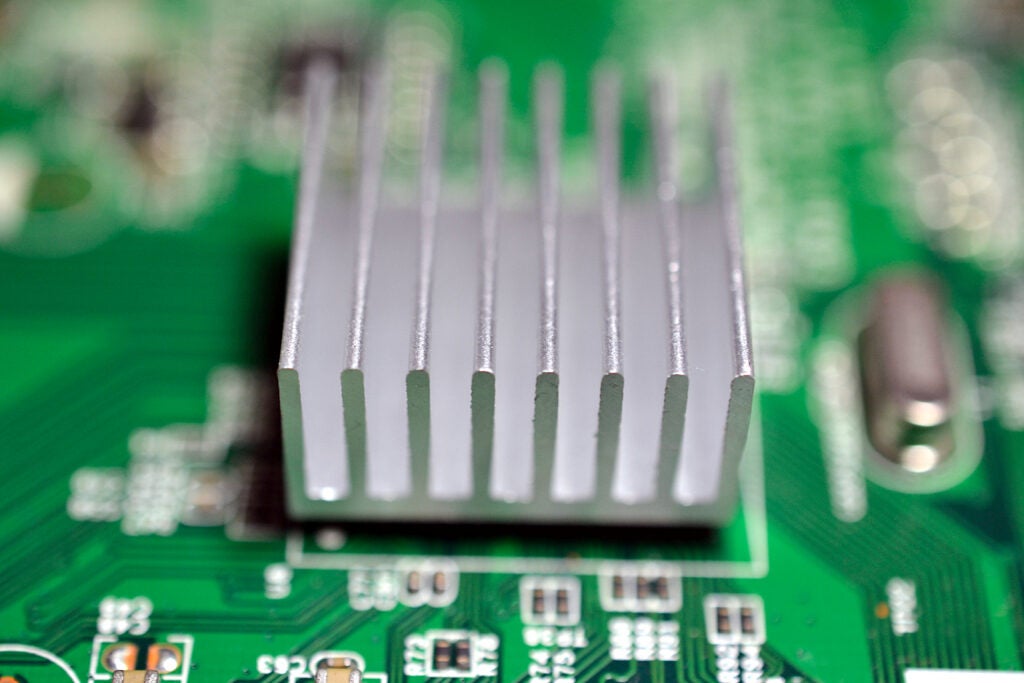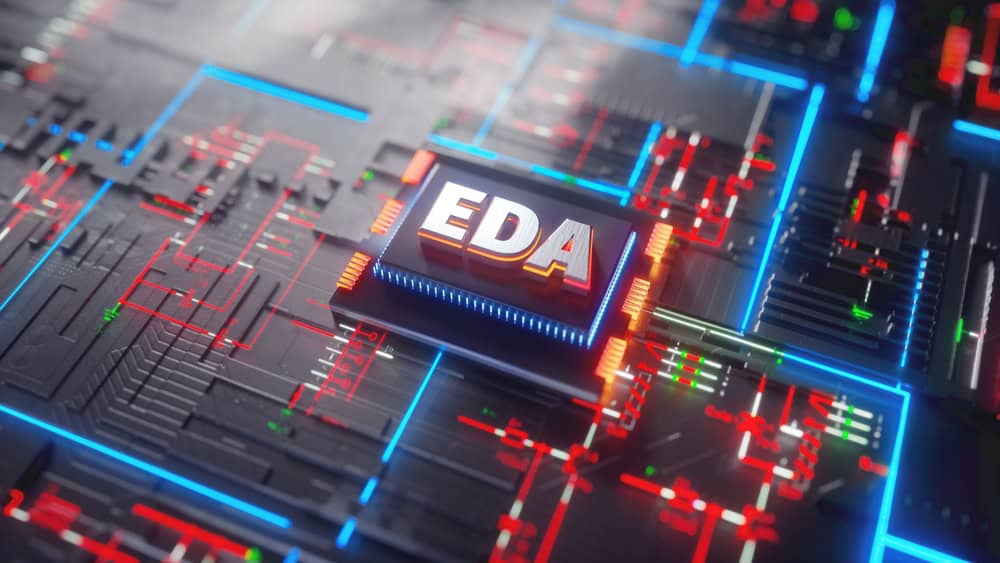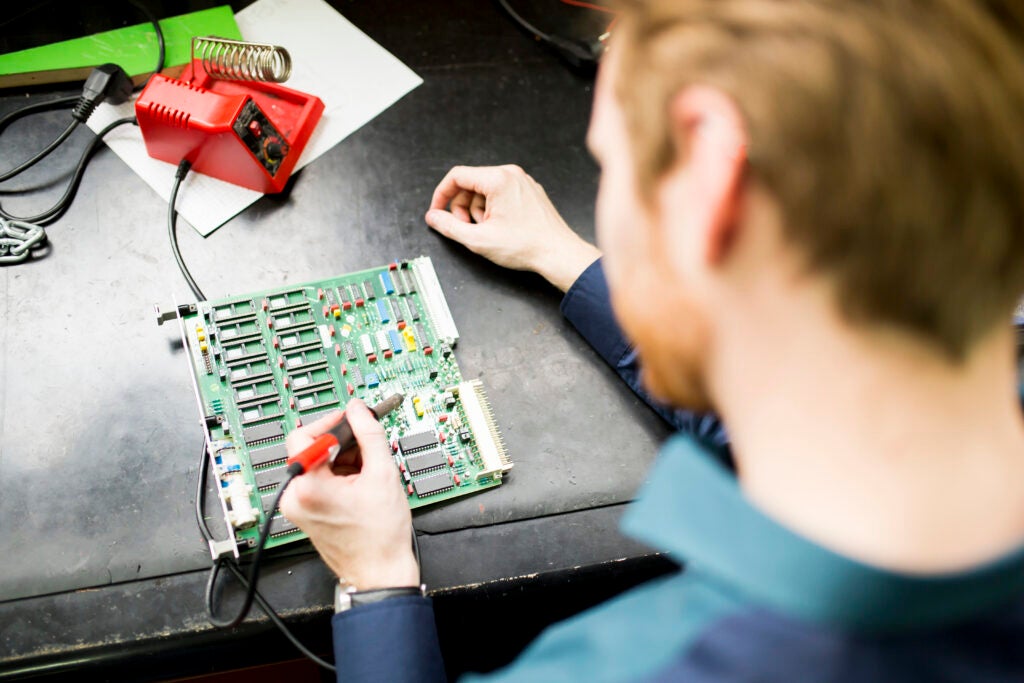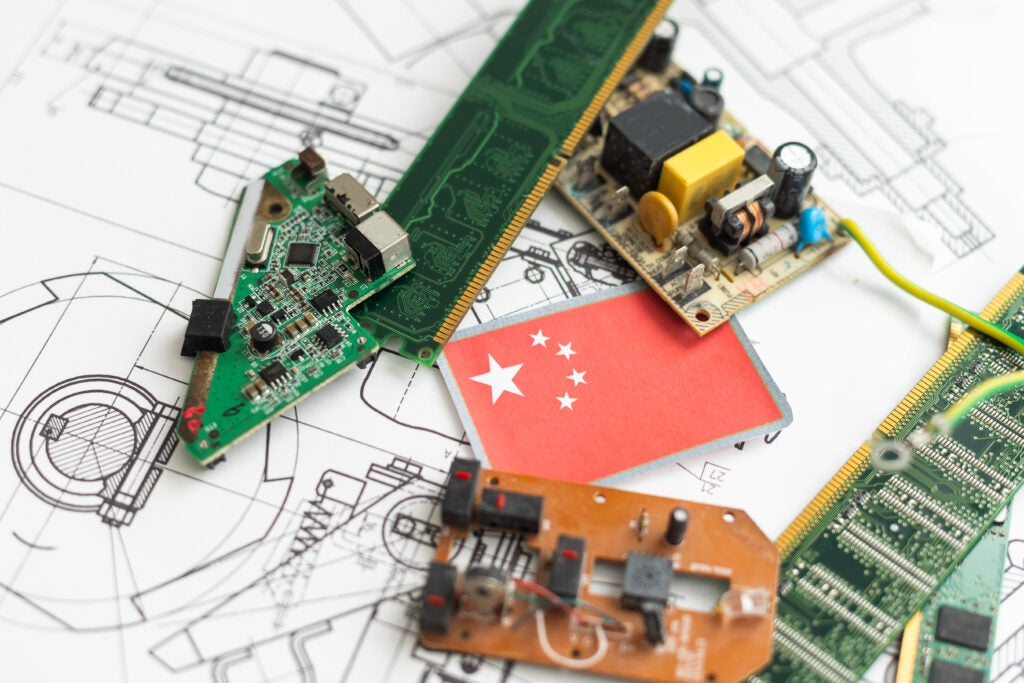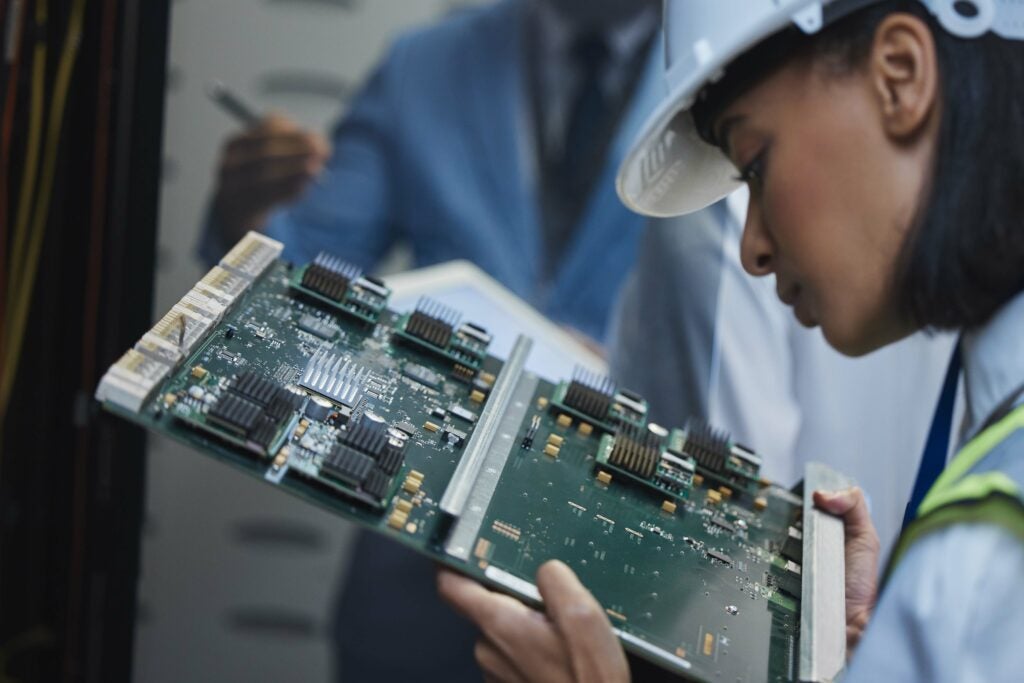Have you heard the one about why engineers enjoy working in teams? Because it means that if things go wrong, they can always blame somebody else. Ba-dum ching! In all seriousness, with the rise of interconnected workplaces, teamwork between engineers is now more important than ever and sadly, more difficult to foster. Let’s face it: as engineers we feel we should be the one to find workable solutions to perplexing problems. So, just how can we learn the fundamentals of fostering team collaboration to get better teamwork and, in turn, engineer better solutions to problems?
Let’s take a look at the top five ways you can improve collaboration and improve outcomes for your engineering projects.
Become an active listener
The main problem most engineering teams run into is communication. As engineers, we like to think of multiple ways design problems and challenges can be met before arriving at the one we feel is the best fix. The problem occurs when we are placed into a team with other engineers who all believe their way is the only correct way. As a result, deadlines get missed, time is wasted, team members feel pressured, and there arises a sense of general dread whenever a team project is in the pipeline. Becoming an active listener allows you to really understand the entirety of what a teammate is saying, without getting bogged down in the technicalities. This is especially important during the initial stages of the design process (such as the inception stage for electrical and/or embedded software engineers). Active listening will also help you weigh the pros and cons of what each team member is saying, without rushing to judgement. Furthermore, it will empower you to respond appropriately allowing you to truly collaborate on the best way forward for the team.
Empower others
At a deeply psychological level, human beings require validation. The highly skilled experts within your team are no different. It is likely your team will be comprised of several individuals who emanate from vastly different areas of expertise, such as: electrical design, SI/PI/Simulation/RF, as well as project management (scheduling, timelines, deliverables, etc.). How do we bring all of these diverse skill sets into alignment and thus allow great team collaboration to flourish? How do we get the individuals in a team to give their best effort for the betterment of the team project? It is important to acknowledge and respect each team member’s skills and experience as valuable.
Taking this approach is a powerful way of empowering others during a kick-off meeting. Try to get input from every person who’s directly involved in the project before letting them know their specific role. You’ll be amazed at how enthused your team becomes about getting started. Like active listening, empowering others helps build a strong sense of teamwork by validating their input. It can be as simple as acknowledging what all the different members within your team do well or buying them a small gift. However, a simple “Thanks for doing a great job!” will also work.
Turn work into a game
Engineers and especially electronics and embedded software engineers, often love playing computer games. Think about it: it is quite easy to spend countless hours trying to beat a challenging computer game. To get past an obstacle in a computer game, get to the next level, or complete a quest, players need to observe very carefully the problem the game is presenting them with, devise a strategy, and implement the strategy, refining it as they go. Sounds a lot like solving an engineering challenge, right? By simply turning your work into a game, you can supercharge your team and ensure the same type of elite collaboration reserved for the top esport gaming teams. These days gamification in the workplace is a burgeoning industry. Why not try enhancing the way your team works by introducing typical gamification features such as: customizable avatars, digital or real-world rewards, and/or leader boards? If a team perceives the work they do to be both challenging and rewarding, the end result is more energized employees; the workplace becomes a fun place to be.
Allow for flexibility
Particular companies excel at allowing their employees flexibility within the regular workplace. However, the Covid-19 pandemic taught the engineering industry the need for a work-from-anywhere approach. This created a huge paradigm shift away from seeing a good worker simply as someone who slaves away for countless hours at the workplace. It’s now more common for an employee’s value to be judged more on the quality of the work they produce. Indeed, electronics design, PCB design, or software engineering is such an enviable job in today’s world because the availability of technology enables us to do our work from anywhere in the world. If your team members love their work and if they have flexibility to do it from anywhere and anytime, then they are more likely to be more productive. Allowing for flexible work routines will ensure each team member is in a position to positively contribute to the team collaboration environment.
Upskill for maximum impact
Ensuring your team members’ individual skills are acknowledged is just one part of maximizing team collaboration. If engineers believe others won’t help them when there is an identifiable need, or address mistakes caused by a less-experienced teammate, they’ll soon start looking for a better workplace. By providing individuals with the opportunity to advance their current skill set, your team will be better equipped to exceed expectations on project deliverables. Speaking from experience, I can attest to the fact that electrical and software engineers thrive in fast-paced work environments where they’re surrounded by highly-specialized talent. This is because a powerful way to learn new skills is via peer-to-peer learning. Team collaboration is essential, and upskilling individual team members is another way to encourage this.
Final thoughts
Ultimately, team collaboration can only occur when every individual in a team feels respected, valued, and that their contribution matters. When it comes to team building, it is important that the individual opinions of engineers are listened to and worked through to benefit the project. To foster strong team collaboration amongst engineers, it’s probably unwise to think you can simply play a typical team building game; following the tips above will create a culture of collaboration and respect within your team. How to best motivate everyone to work in the team’s best interest will no longer be a mystery.
